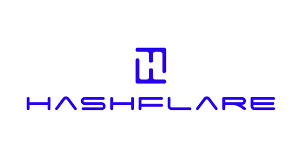
Technology
U.S. to Extradite HashFlare Founders from Estonia See Why

iexclusivenews – Ivan Turogin and Sergei Potapenko, the co-founders of defunct Bitcoin BTC -$41,868 cloud mining service HashFlare, are facing extradition from Estonia to the United States.
The two Estonian citizens were previously granted a reprieve by an appeals court in November, but the Estonian government has since satisfied the requirements for their extradition to proceed.

Turogin and Potapenko are accused of 18 counts of conspiracy, wire fraud, and conspiracy to commit money laundering in the U.S. and could spend up to 20 years each behind bars.
Their company, HashFlare, was once a popular cloud mining platform but allegedly operated as a Ponzi scheme.
Turogin and Potapenko were arrested in Estonia in November 2022, following a massive investigation by U.S. and Estonian authorities.

The Extradition Process and Controversy
The Estonian government authorized the extradition of Turogin and Potapenko in September, but they appealed the decision in November, and a court ruled that the lower court that approved their extradition did not take into account the conditions in U.S. detention facilities.
The higher court ordered that Turogin and Potapenko should receive financial compensation instead.
However, the Estonian government has now gathered evidence on U.S. detention conditions showing that it could “ensure that the infringement of the individuals’ fundamental rights due to extradition is not disproportionate,” according to local news outlet Postimees.
MORE NEWS:
Jury Slams Trump With $83M Fine In Defamation Lawsuit
Trump Provides A Rapid-fire Testimony In New York Defamation Trial
Putin Deploys 100 Soldiers To Burkina Faso See Why
The Rise and Fall of HashFlare
Dear users! We would like to inform you that today, on 08.08.2019, we are suspending the sale of ETHASH contracts, since our current capacity has been sold out.
— HashFlare (@hashflare) August 8, 2019
HashFlare raked in $575 million before shutting down in 2019. It had been struggling since the previous year, when it closed some of its miners citing lack of profitability from them.
The U.S. Department of Justice (DOJ) alleged that Turogin and Potpenko “offered contracts under which customers could pay a fee to rent a percentage of HashFlare’s mining operations in exchange for the virtual currency produced by their portion of the operation.”
However, HashFlare did not have the equipment it claimed, or even 1% of the computing power they advertised.
The DOJ added: “When investors asked to withdraw their mining proceeds […] the defendants either resisted making the payments, or paid off the investors using virtual currency the defendants had purchased on the open market — not currency they had mined.”
The DOJ said the scam has “hundreds of thousands” of victims. The U.S. Federal Bureau of Investigation is still seeking victims. Turogin and Potapenko are also charged with collecting $25 million from investors to create a digital bank that would be named Polybius. They did not deliver on their promises.




























